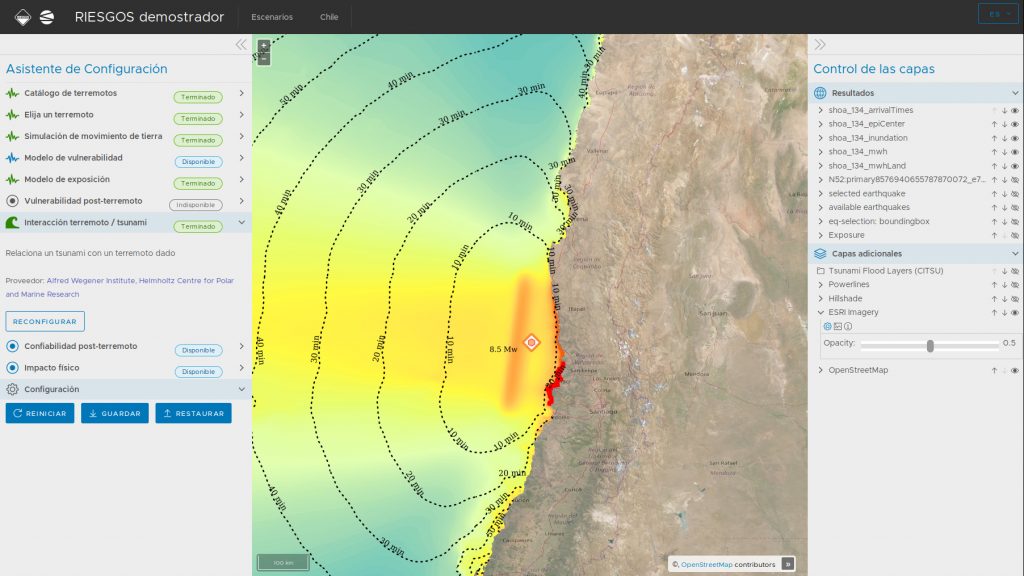Multi-risk Analysis and Information System Components for the Andes Region
Developing novel concepts and components for multi-risk assessment of natural hazards
The RIESGOS project addresses challenges of increased risks to society caused by natural hazards, such as volcanic eruptions, earthquakes or tsunamis. It aims to effect more efficient risk management based on more reliable information. In particular, the project addresses complex interactions, such as cascading effects of certain hazards and risks, as well as many of the underlying sources of uncertainty.
RIESGOS develops novel scientific approaches related to the assessment of different hazards and risks. This includes the analysis of dynamic exposure, vulnerability and the modelling of cascading effects and possible failures.
Modular Web services integrated into a flexible and scalable multi-risk information system demonstrator provide the foundation of the RIESGOS software architecture. End-users from civil protection and disaster management authorities receive tools to simulate and analyze complex multi-risk scenarios. These tools are complemented by the development and investigation of strategies for information-based and dialog-based risk communication.
At 52°North, we are responsible for the conceptual design and implementation of an interoperable architecture for a multi-risk analysis and information system for the Andes region. Our tasks comprise:
- the analysis of requirements
- the development of a software architecture following international standards to ensure interoperability (e.g., INSPIRE, OGC)
- the implementation of selected components (data access, data analysis and processing, communication) into demonstrators
- a contribution to market analysis and development of exploitation perspectives (focus on the publication as open source software).

Our team focused on finalizing the service and infrastructure documentation in 2020. We incorporated recent OGC developments, such as the standardization process of the “OGC API Processes”, in the overall RIESGOS architecture concept. Our experts also supported the integration of the different web services in their finalized versions into the RIESGOS demonstrator application. During several online workshops, we exhibited the demonstrator and the underlying concepts to small and medium enterprises who are active in the field of Disaster Risk Management in the project region.
Partners
Coordinator: Deutsches Zentrum für Luft- und Raumfahrt (DLR), Germany
Helmholtz-Zentrums Potsdam Deutsches GeoForschungsZentrum (GFZ), Germany
Alfred Wegener Institut (AWI), Germany
Technische Universität München (TUM), Germany
geomer GmbH, Germany
EOMAP GmbH & Co. KG, Germany
plan + risk consult, Germany
DIALOGIK, Germany

